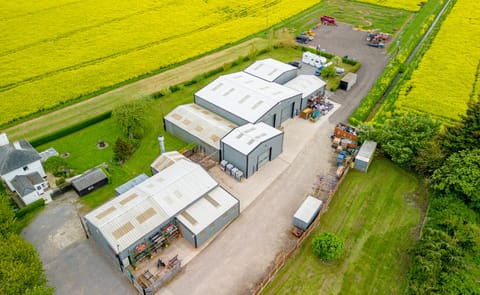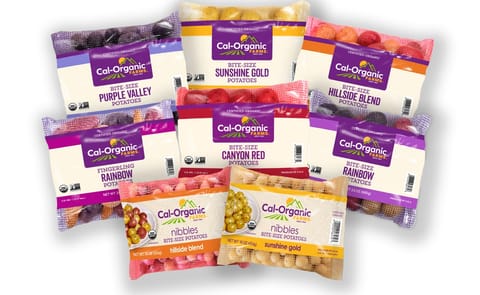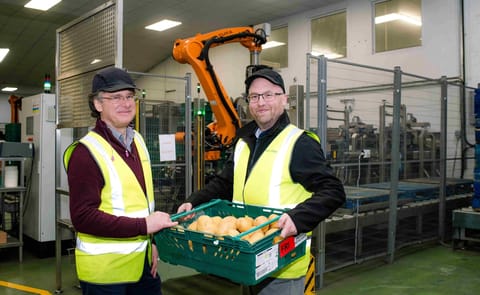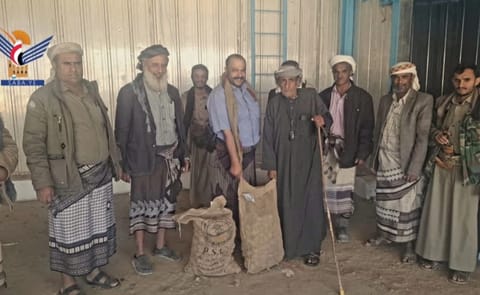The solutions provided by sorting technologies are more necessary now than ever before.
主标签
Tomra Food Reaches Out to Help Vegetable Processors During Covid-19 Crisis

TOMRA Food is reaching out to vegetable processors everywhere to help them tackle the challenges posed by the COVID-19 pandemic. By launching an information campaign and sharing advice online for plant managers, production managers, process engineers, and quality managers, the company is taking steps to explain how the latest, state-of-the-art sorting technologies can help solve the operational issues that have been caused or worsened by the pandemic’s economic effects.
The forced shutdown of fast food outlets and restaurants, and the lockdown restrictions imposed in many nations, have disrupted consumers’ food-shopping habits. As people cook more frequently at home, retail demand for vegetables of all types – fresh, frozen, and canned – has significantly increased. Demand rapidly outstripped supply when lockdowns started and vegetable sales in many places are still above 2019 levels by about 30-35%.
For an industry that usually measures sales growth in single digits, this is a big difference. Many processors consequently find themselves under unprecedented pressure to improve productivity and increase throughputs. At the same time, however, they must resist rushing products down the line so fast that product quality might be compromised. But not all processors have the technologies or people power to manage this.
In another challenge, longstanding difficulties recruiting and retaining labor have worsened as processors’ workloads have increased. International travel bans have blocked access to seasonal workers, and reports of COVID-19 outbreaks at food processing plants have discouraged locally-based people from taking on this kind of work.

This is particularly challenging for older-style businesses which rely on people overlooking the line’s conveyor belts to remove foreign materials and imperfect product.
The third challenge, to safeguard workers from future outbreaks, is that processors are having to introduce social distancing measures and provide workers with personal protective equipment. This is adding to the inconvenience and expense of manually performing line tasks which could be mechanized and automated. And even when travel restrictions are lifted and fears of COVID-19 have eventually passed, labor will remain scarce. Most unskilled laborers in developed nations prefer the security of permanent employment to seasonal contracts, while manual laborers in developing nations can increasingly choose from more desirable types of work.
Proven solutions to these challenges, however, are available. It is these that TOMRA Food is now flagging-up with its communications campaign, spotlighting the capabilities of optical sorting and steam peeling machines, combined with remotely supported startup and remote technical support, when vegetable processors need them more than ever before.
Ashley Hunter, Senior Vice President and Head of TOMRA Food Sorting:
“Our technologies can address the challenges brought about or intensified by the COVID-19 pandemic.”
“Today’s sophisticated sorting machines can reduce dependence on manual labor, maximize line capacity, and process large volumes of vegetables, around-the-clock if necessary, while assuring food safety and quality.”
“In these trying times, it is now more important than ever that vegetable processors are aware of these capabilities.”
Some sorters, such as TOMRA’s Sentinel II, are located on the receiving side of the processing line. These pre-sorters prevent large foreign materials from getting to the line, such as rodents, snakes, and toads, as well as stones, plastic and glass.
Other sorters, such as the TOMRA 5B, are positioned downstream, where they can perform a variety of tasks: detect weeds including the toxic datura and nightshade plants; remove even the smallest fragments of foreign materials; and identify bruising or discoloring on the vegetable skin – the kind of imperfections which, if they made it through to the product tray, would discourage shoppers from making the purchase, and which can quickly go viral on social media and cause commercial damage.

Another, important advantage of these machines is their emerging role in the digitalization of production lines, which are becoming connected and remotely controllable, with automated data-gathering and analysis.
The ability to acquire, analyze, and act quickly on data is enabling machine parameters to be set and customized with previously unimaginable levels of precision.
Users of these machines also benefit from remote online support through TOMRA Services, to minimize the numbers of people accessing the production plants: remote demonstration of new technologies, remote support during installation and startup of production lines, and remote support in case of technical problems. With a fully staffed help desk in multiple countries, and a global Field Service team of engineers, the TOMRA team can help any customer in any place within minutes.
Vegetable processors are invited to find out more about the ways in which TOMRA Food can help them, through the COVID-19 crisis and far beyond, by contacting the company and by visiting the company’s website.











